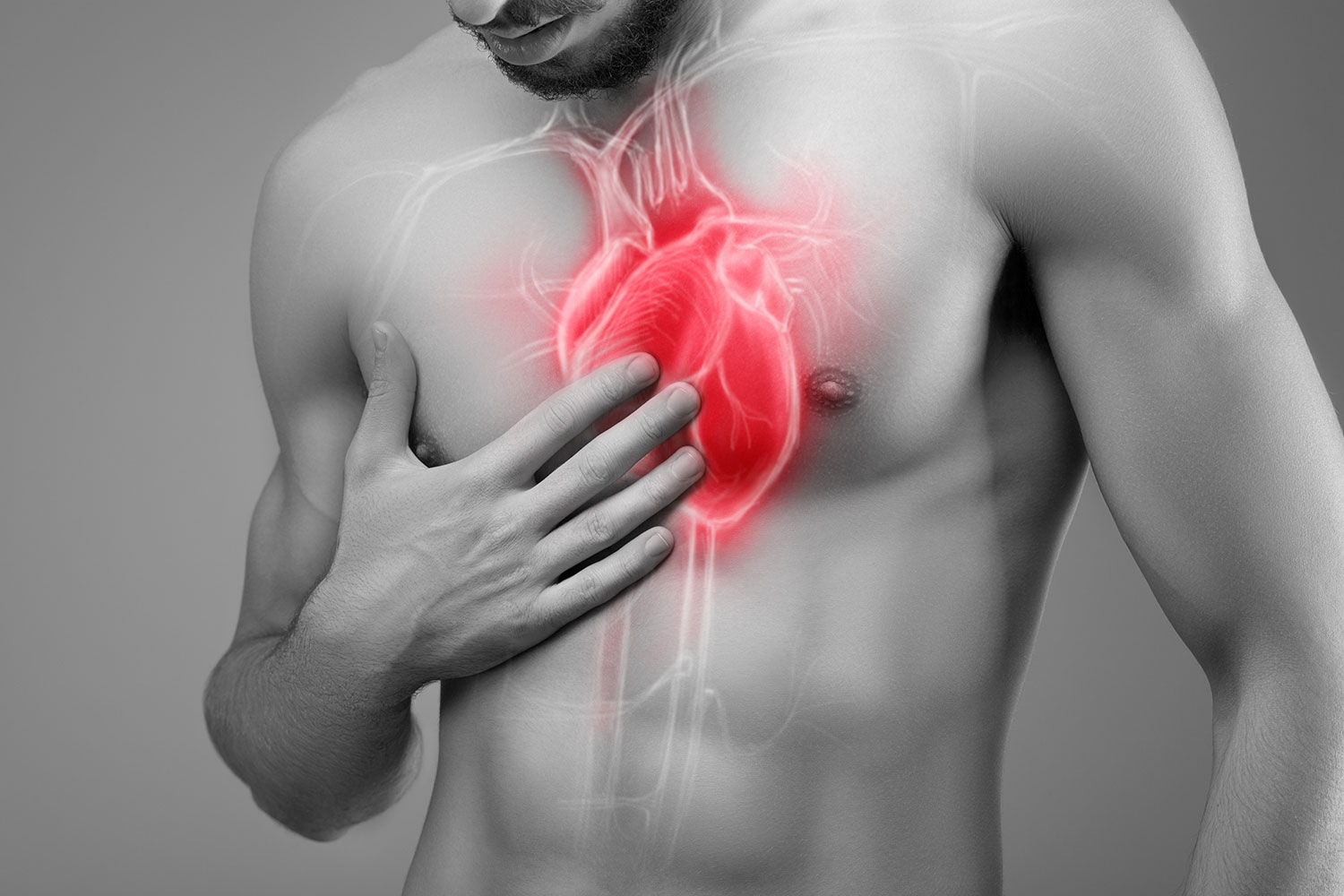Locating a Cardiologist near me that offers holistic heart solutions
Locating a Cardiologist near me that offers holistic heart solutions
Blog Article
Comprehending the Value of Cardiology in Modern Healthcare Solutions
Cardiology plays an essential function in contemporary medical care, specifically as heart problem proceeds to be the leading source of mortality worldwide. Developments in diagnostics and treatment have actually transformed client treatment, enabling earlier interventions and boosted results. In addition, the shift in the direction of precautionary cardiology empowers people to manage their health proactively. As modern technology remains to develop, the assimilation of ingenious solutions might even more redefine cardiology's effect on public health and wellness, triggering a better examination of arising fads and their implications.
The Frequency of Heart Problem and Its Influence on Public Wellness
Although cardiovascular disease continues to be the leading reason of death around the world, its impact expands far past private people to affect public health and wellness systems and economies. The high prevalence of heart condition puts a substantial pressure on healthcare sources, requiring enhanced financing for avoidance, rehabilitation, and therapy programs. Public health and wellness efforts must attend to risk factors such as excessive weight, cigarette smoking, and sedentary way of livings, which add greatly to the increasing incidence of heart conditions.Moreover, the economic problem associated with cardiovascular disease is tremendous, encompassing not only direct clinical prices however also indirect costs associated with shed productivity and premature death. Neighborhoods encounter difficulties in taking care of these prices, commonly leading to disparities in medical care gain access to and results. As the populace ages and lifestyle-related risks remain to rise, the seriousness for effective cardiology interventions becomes extremely important. Subsequently, dealing with heart condition is not just an issue of private wellness however additionally a critical public health and wellness concern.
Advancements in Heart Diagnostics and Imaging Techniques
Current advancements in heart diagnostics and imaging methods have reinvented the field of cardiology, boosting the ability to keep track of and detect heart diseases. Methods such as cardiac MRI, CT angiography, and echocardiography have actually ended up being increasingly sophisticated, giving comprehensive pictures of cardiac frameworks and functions. These methods permit the early identification of problems like coronary artery condition, heart failure, and valvular disorders.Moreover, developments in non-invasive diagnostics, such as wearable modern technology and remote tracking tools, have empowered individuals and doctor. These tools help with real-time monitoring of heart rhythms and various other necessary indicators, resulting in timely interventions. In addition, expert system is being incorporated into imaging analysis, improving accuracy and performance in diagnosis.
Technologies in Treatment Alternatives for Heart Issues
Recent innovations in cardiology have actually resulted in significant innovations in therapy choices for heart disease. These consist of innovative surgical techniques that enhance procedural results and emerging medicines that supply brand-new opportunities for therapy. As the field develops, these technologies play a vital role in improving patient treatment and end results.
Advanced Surgical Techniques
Developments in surgical strategies have changed the landscape of cardiology, providing brand-new hope for people with heart problems. Minimally intrusive treatments, such as catheter-based interventions, have actually significantly decreased healing times and healthcare facility remains. Techniques like robotic-assisted surgical treatment improve accuracy, enabling doctors to navigate complicated physiological structures with greater accuracy. In addition, innovations in imaging technology promote real-time visualization throughout procedures, improving outcomes. Transcatheter aortic valve substitute (TAVR) exhibits a development in treating aortic stenosis, making it possible for shutoff replacement without open-heart surgical procedure. In addition, hybrid approaches that combine catheter-based and surgical techniques offer tailored solutions for numerous heart concerns. These advanced surgical strategies not only improve patient security but additionally increase therapy alternatives, emphasizing the vital duty of technology in contemporary cardiology methods.
Arising Treatments and medications
As the landscape of cardiology remains to progress, emerging therapies and medicines play an essential role in boosting treatment choices for heart disease. Technologies such as unique anticoagulants and advanced lipid-lowering agents have actually changed the administration of heart diseases, significantly reducing client morbidity and mortality. In addition, the advancement of genetics treatments and regenerative medicine supplies promising methods for dealing with problems formerly deemed permanent. Medical tests are continually exposing the effectiveness of these therapies, pressing the boundaries of traditional therapies. In addition, the assimilation of electronic wellness technologies facilitates individualized medication, enabling customized therapy plans based upon genetic and lifestyle factors. Collectively, these advancements highlight the vibrant nature of cardiology, enhancing individual outcomes and redefining standards of care in modern healthcare.
The Function of Preventive Cardiology in Person Treatment
Preventative cardiology plays a necessary duty in individual care by concentrating on the recognition of danger aspects that add to heart illness. Via way of living modification techniques and early discovery strategies, medical care service providers can successfully reduce the incidence of cardiovascular occasions - Dr Garcia. This proactive approach not just improves client outcomes yet likewise promotes long-lasting health
Risk Element Identification
While heart diseases stay a leading cause of morbidity and mortality worldwide, effective risk variable identification acts as a foundation of preventive cardiology. Determining threat aspects such as hypertension, diabetic issues, family, and hyperlipidemia history is crucial for early intervention. Health care experts make use of different evaluating methods to assess these aspects, allowing for customized preventive measures. In addition, understanding a client's way of living choices, such as smoking cigarettes and physical inactivity, even more notifies danger assessments. This extensive assessment allows medical professionals to create individualized care strategies focused on mitigating risks. By focusing on danger factor identification, medical care systems can improve client end results and decrease the total burden of cardiovascular illness, eventually contributing to improved public wellness techniques and source allocation.
Way Of Living Alteration Strategies
A plethora of researches highlights the critical role of way of life modification strategies in minimizing heart disease threat. These approaches include nutritional adjustments, raised physical task, smoking cessation, and weight management. By taking on a heart-healthy diet plan rich in fruits, vegetables, entire grains, and lean proteins, individuals can reduce cholesterol degrees and blood pressure. Regular pop over here physical task strengthens the heart and enhances overall cardio health and wellness. Additionally, quitting smoking cigarettes significantly lowers the risk of heart problem and improves recuperation rates for those with status quo. Weight management additionally adds to cardiovascular wellness by alleviating other danger elements such as diabetes and high blood pressure. Carrying out these way of life changes not only advertises specific well-being however likewise works as a keystone of preventative cardiology in client care.
Very Early Discovery Strategies
Way of living adjustments substantially contribute to minimizing heart disease threats, however they are most effective when coupled with early discovery techniques. Preventive cardiology stresses the value of determining potential heart problems prior to they rise right into significant problems. Techniques such as high blood pressure monitoring, cholesterol testing, and advanced imaging modern technologies like echocardiograms play essential roles in reviewing cardio wellness. Biomarkers and hereditary screening also improve the precision of early discovery, permitting customized preventive strategies. Normal heart threat analyses encourage doctor to interfere proactively, potentially stopping cardiovascular disease and strokes (Cardiologist near me). By integrating these very early detection techniques right into routine treatment, patients can benefit from timely way of life interventions and targeted treatments, ultimately enhancing outcomes and improving lifestyle
Integrating Modern Technology Into Cardiology Practices
As innovations in modern technology continue to improve different fields, the integration of ingenious devices and systems right into cardiology methods has actually come to be vital for boosting client treatment and end results. Telemedicine systems allow cardiologists to keep track of patients from another location, enhancing access to care while decreasing the burden on medical care facilities. Wearable gadgets, such as smartwatches, allow continual heart rate tracking, notifying both patients and physicians to potential problems in real-time. Furthermore, synthetic Get the facts knowledge (AI) is being utilized to analyze huge quantities of heart information, aiding in very early medical diagnosis and personalized treatment plans. Advanced imaging strategies, including 3D echocardiography, enhance visualization of heart structures, causing much more specific treatments. Electronic wellness records (EHRs) improve client info management, guaranteeing that cardiologists have prompt accessibility to crucial data. With each other, these technological improvements are transforming cardiology, advertising positive administration and boosted wellness outcomes for people with cardio conditions.
The Significance of Patient Education and Interaction
Patient education and interaction play a crucial role in the management of cardiovascular wellness. By outfitting people with knowledge concerning their conditions, treatment alternatives, and lifestyle adjustments, health care service providers empower people to take an energetic duty in their care. This positive method can bring about enhanced adherence to suggested medications, nutritional adjustments, and exercise programs, ultimately reducing the risk of complications.Engagement additionally cultivates a strong patient-provider relationship, urging open interaction and trust fund. When individuals really feel notified and included, they are more probable to voice concerns and ask concerns, which can result in much better medical outcomes. Furthermore, educational resources, such as workshops or electronic platforms, can boost understanding and advertise self-management approaches. On the whole, focusing on individual education and engagement is essential for enhancing cardio wellness, enhancing high quality of life, and lowering health care prices related to cardio illness.
Future Patterns in Cardiology and Their Potential Effect

Frequently Asked Inquiries
What Lifestyle Modifications Can Lower Heart Problem Risk?
The current concern addresses lifestyle changes that can considerably decrease cardiovascular disease risk. Cardiology. Embracing a well balanced diet regimen, participating in routine physical task, keeping a healthy and balanced weight, taking care of anxiety, and avoiding tobacco can notably improve cardiovascular health and wellness
How Can I Acknowledge Very Early Indications of Heart Problems?
Identifying early indicators of heart troubles involves tracking symptoms such as chest pain, lack of breath, exhaustion, and uneven heartbeat. Timely understanding of these indications can trigger essential medical examination and treatment for better end results.
What Are the Distinctions Between Cardiologists and Heart Surgeons?
The differences between cardiologists and cardiac doctors hinge on their roles; cardiologists primarily detect and take care of heart disease through non-invasive techniques, while cardiac surgeons execute address surgical treatments to remedy structural heart problems. Each plays an essential, distinct function.

Just how Commonly Should I Get My Heart Health And Wellness Checked?
The regularity of heart health and wellness checks varies based upon individual threat aspects. Usually, adults should go through examinations each to two years, while those with existing problems might require even more constant analyses as suggested by health care professionals.
What Function Does Genetics Play in Heart Problem Threat?
Genes significantly affects cardiovascular disease risk, with familial patterns suggesting acquired problems. Specific genes can incline individuals to hypertension, cholesterol issues, and other cardiovascular problems, highlighting the significance of hereditary testing in examining heart health and wellness. Heart condition remains the leading reason of fatality internationally, its impact expands far past individual clients to affect public health systems and economic climates. Public health and wellness efforts need to address danger aspects such as obesity, cigarette smoking, and less active way of livings, which add greatly to the increasing occurrence of heart conditions.Moreover, the financial concern connected with heart illness is enormous, encompassing not only straight clinical costs yet likewise indirect expenditures associated to shed productivity and early mortality. Preventative cardiology plays a necessary function in client treatment by focusing on the recognition of threat factors that add to heart condition. Artificial knowledge (AI) and equipment learning are improving diagnostics and patient monitoring, allowing early discovery of heart diseases. The differences between cardiologists and cardiac cosmetic surgeons exist in their duties; cardiologists primarily take care of and identify heart problems with non-invasive approaches, while heart doctors carry out medical procedures to remedy structural heart problems.
Report this page